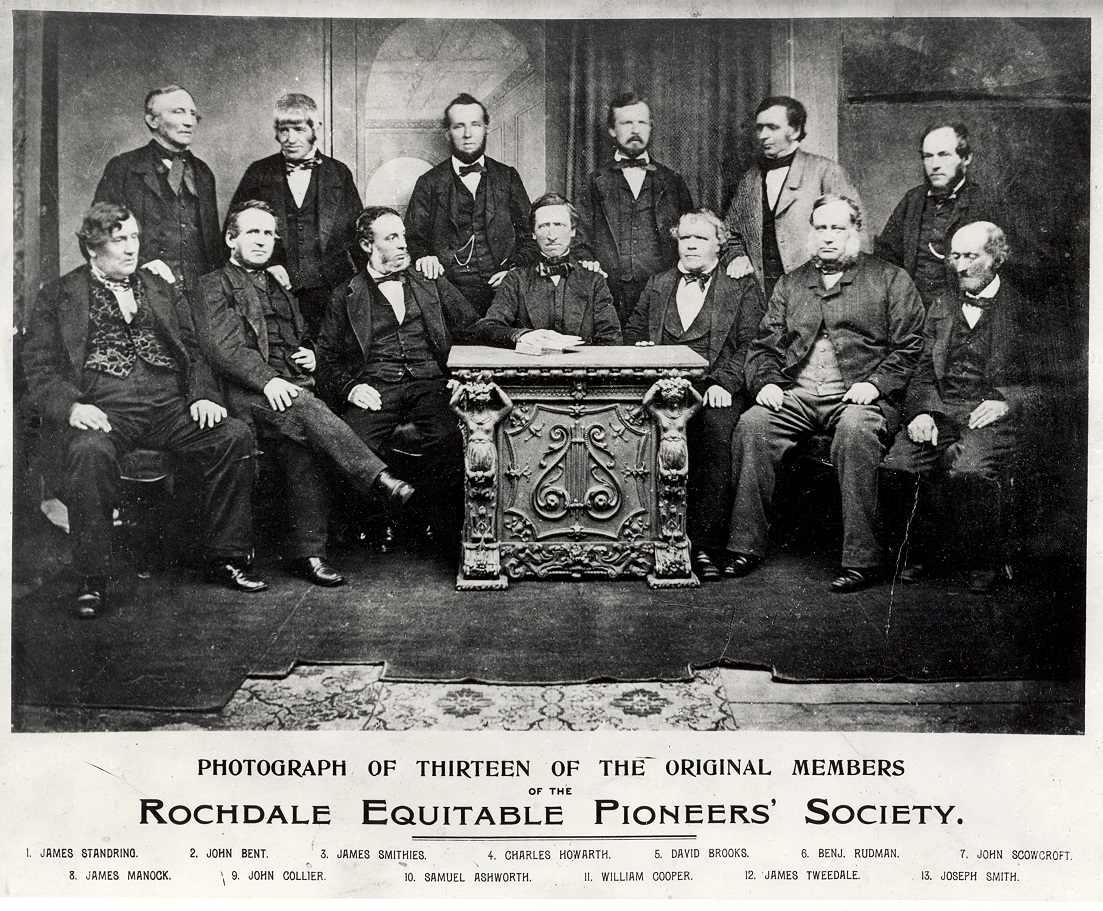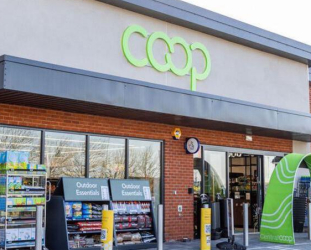History
The Co-operative Movement has its roots in the Lancashire textile town of Rochdale, England, where, in 1844, harsh living conditions and inadequate consumer protection - the adulteration of food by private traders was widespread - prompted 28 working men to adopt a new approach to the supply of food and other goods and the provision of social and educational facilities for ordinary working people by setting up a retail Co-operative society, the Rochdale Equitable Pioneers Society.

These 28 Rochdale men scraped together a meagre capital and opened a shop in Toad Lane, where they sold wholesome food at reasonable prices. A share of the profit or surplus as they preferred to call it, was returned to members in proportion to their purchases - the famous Co-operative dividend or "divi". The Pioneers and other early Co-operators owed much of their inspiration to the Co-operative writings of Dr William King, a Brighton physician and philanthropist, and Robert Owen, a Welsh manufacturer and social reformer. From the decisions and practices of the Pioneers, based on the Owenite theories of Co-operation, the Rochdale Principles of Co-operation were fomulated. These included: voluntary and open membership; democratic control - one member, one vote; payment of limited interest on capital; surplus allocated in proportion to members' purchases - the dividend; and educational facilities for members and workers.
It is not claimed that the Rochdale Pioneers Society was the very first Co-operative nor was its shop the very first Co-operative store. There were earlier societies, but even those that survived came to adopt the Rochdale pattern of Co-operation as the best means of operating a Co-operative society and fulfilling its aims. Rochdale became a model for the formation of similar Co-operative societies throughout the United Kingdom and around the World.
The Rochdale idea of Co-operation has spread throughout the world and today there are 1 billion Co-operators in 95 countries. In 1895, the International Co-operative Alliance was established to support the development of Co-operation around the World.
Latest News

EU Commission Presents New Five-Year Consumer Policy Roadmap
The EU Commission has unveiled its new five-year roadmap for consumer policy, outlining...

Euro Coop Co-Signs Joint Position Paper on Omnibus I
Euro Coop, together with CNA , Legacoop and ECCO , has released a joint position paper in...

Euro Coop is seeking an Erasmus+ Policy Intern
Euro Coop – The European Community of Consumer Co-operatives is seeking a Policy Intern...
Latest Stories

OurCoop: A New Era for the UK Co-operative Movement
Euro Coop welcomes the official launch of OurCoop , the new co-operative society formed...

UN Recognises Cooperatives with Decadal International Year
Euro Coop warmly welcomes the United Nations General Assembly’s historic resolution to...

Skupina COOP Wins at the European Commerce Awards 2025
Euro Coop warmly congratulates Skupina COOP , our member from the Czech Republic, for winning...

